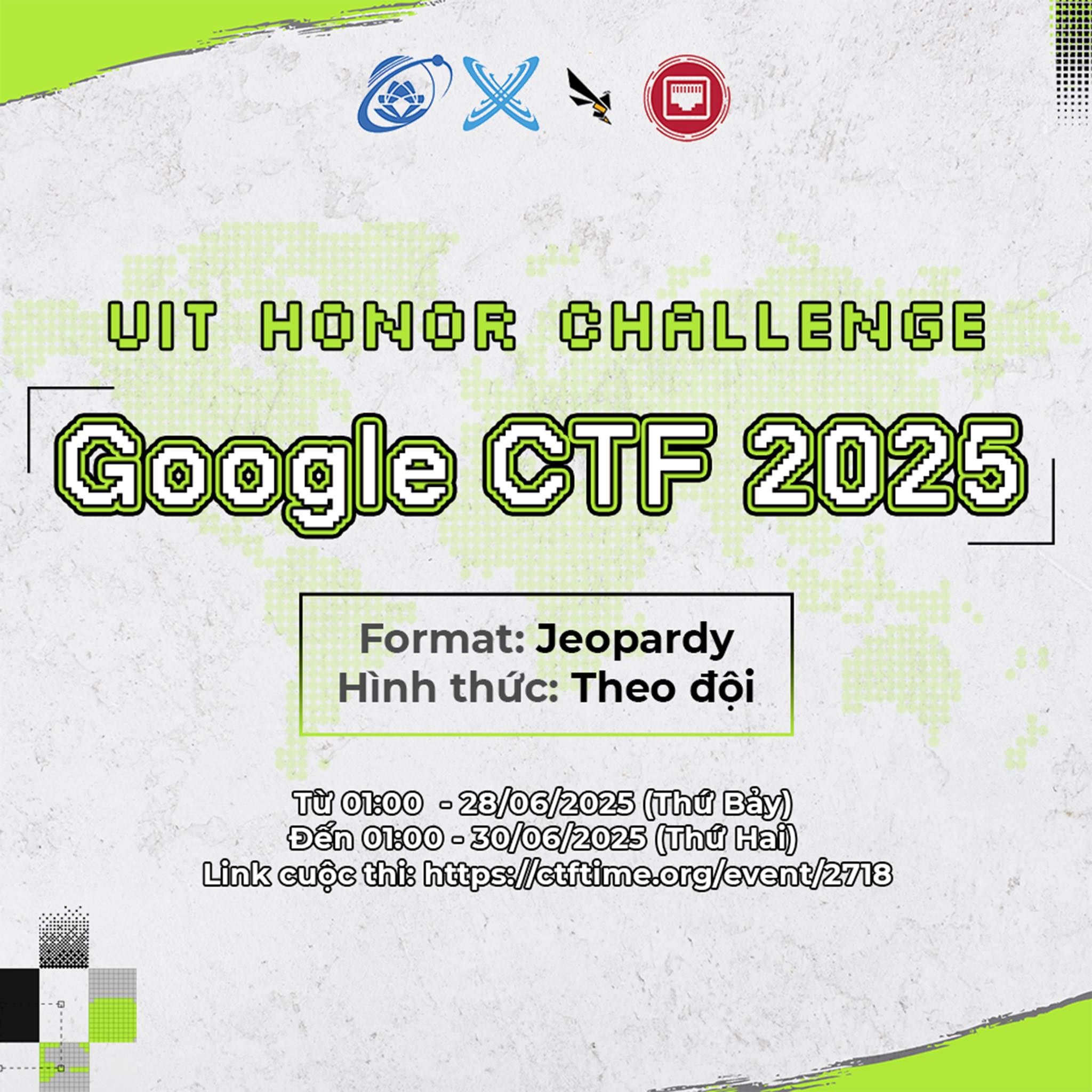Chúc mừng nhóm sinh viên 𝐓𝐫𝐚̂̀𝐧 Đ𝐮̛́𝐜 𝐋𝐮̛𝐨̛𝐧𝐠 - 𝐕𝐮̛𝐨̛𝐧𝐠 𝐌𝐢𝐧𝐡 𝐓𝐢𝐞̂́𝐧 (chương trình Kỹ sư tài năng ngành An toàn thông tin - Khoa Mạng máy tính & Truyền thông) và 𝗻𝗵𝗼́𝗺 𝗻𝗴𝗵𝗶𝗲̂𝗻 𝗰𝘂̛́𝘂 𝐈𝐧𝐒𝐞𝐜𝐋𝐚𝐛 đã có công trình nghiên cứu về Ứng dụng Học máy trong ATTT được chấp nhận đăng tại Kỷ yếu Hội nghị khoa học quốc tế "𝐓𝐡𝐞 𝟏𝟖𝐭𝐡 𝐈𝐧𝐭𝐞𝐫𝐧𝐚𝐭𝐢𝐨𝐧𝐚𝐥 𝐂𝐨𝐧𝐟𝐞𝐫𝐞𝐧𝐜𝐞 𝐨𝐧 𝐈𝐧𝐟𝐨𝐫𝐦𝐚𝐭𝐢𝐨𝐧 𝐒𝐞𝐜𝐮𝐫𝐢𝐭𝐲 𝐏𝐫𝐚𝐜𝐭𝐢𝐜𝐞 𝐚𝐧𝐝 𝐄𝐱𝐩𝐞𝐫𝐢𝐞𝐧𝐜𝐞 (𝐈𝐒𝐏𝐄𝐂 𝟐𝟎𝟐𝟑)" được tổ chức tại Copenhagen, Đan Mạch vào tháng 08.2023. Đây là một trong những hội nghị khoa học uy tín cao về An toàn thông tin (hội nghị nằm trong danh mục Scopus xếp hạng B).
▶️︎▶️︎ Bài báo: "𝐅𝐞𝐝𝐋𝐒: 𝐀𝐧 𝐀𝐧𝐭𝐢-𝐩𝐨𝐢𝐬𝐨𝐧𝐢𝐧𝐠 𝐀𝐭𝐭𝐚𝐜𝐤 𝐌𝐞𝐜𝐡𝐚𝐧𝐢𝐬𝐦 𝐟𝐨𝐫 𝐅𝐞𝐝𝐞𝐫𝐚𝐭𝐞𝐝 𝐍𝐞𝐭𝐰𝐨𝐫𝐤 𝐈𝐧𝐭𝐫𝐮𝐬𝐢𝐨𝐧 𝐃𝐞𝐭𝐞𝐜𝐭𝐢𝐨𝐧 𝐒𝐲𝐬𝐭𝐞𝐦𝐬 𝐮𝐬𝐢𝐧𝐠 𝐀𝐮𝐭𝐨𝐞𝐧𝐜𝐨𝐝𝐞𝐫-𝐛𝐚𝐬𝐞𝐝 𝐋𝐚𝐭𝐞𝐧𝐭 𝐒𝐩𝐚𝐜𝐞 𝐑𝐞𝐩𝐫𝐞𝐬𝐞𝐧𝐭𝐚𝐭𝐢𝐨𝐧𝐬"
- 𝐒𝐢𝐧𝐡 𝐯𝐢𝐞̂𝐧: 𝐓𝐫𝐚̂̀𝐧 Đ𝐮̛́𝐜 𝐋𝐮̛𝐨̛𝐧𝐠 (𝐀𝐓𝐓𝐍𝟐𝟎𝟏𝟗), 𝐕𝐮̛𝐨̛𝐧𝐠 𝐌𝐢𝐧𝐡 𝐓𝐢𝐞̂́𝐧 (𝐀𝐓𝐓𝐍𝟐𝟎𝟏𝟗)
- 𝐂𝐡𝐮̉ đ𝐞̂̀ 𝐧𝐠𝐡𝐢𝐞̂𝐧 𝐜𝐮̛́𝐮: 𝐇𝐨̣𝐜 𝐦𝐚́𝐲 𝐭𝐫𝐨𝐧𝐠 𝐀𝐧 𝐭𝐨𝐚̀𝐧 𝐭𝐡𝐨̂𝐧𝐠 𝐭𝐢𝐧
- 𝐆𝐕𝐇𝐃: 𝐓𝐡𝐒. 𝐏𝐡𝐚𝐧 𝐓𝐡𝐞̂́ 𝐃𝐮𝐲, 𝐓𝐒. 𝐏𝐡𝐚̣𝐦 𝐕𝐚̆𝐧 𝐇𝐚̣̂𝐮
🔰 Hội nghị ISPEC là một hội nghị quốc tế thường niên hướng tới những nghiên cứu mới trong trong lĩnh vực Bảo mật Mạng máy tính và hệ thống; và các ứng dụng thực tiễn về An toàn thông tin. Hội nghị ISPEC được xếp hạng B trong các hội nghị uy tín về An toàn thông tin, nó cũng nằm trong danh sách các hội nghị uy tín theo đề xuất của SCOPUS. Hội nghị ISPEC đã trải qua 17 lần tổ chức tại nhiều thành phố lớn trên thế giới: Singapore, Hàn Châu, Syney, Tây An, Seoul, Quảng Châu, Lan Châu, Phúc Châu, Bắc Kinh, Melbourn, Tokyo, Hong Kong, Luala Lumpur, Đài Bắc....Hội nghị ISPEC 2023 do Đại học Kỹ thuật Đan Mạch tổ chức, sẽ diễn ra vào ngày 24-25.08.2023 tại Copenhagen, Đan Mạch. Hội nghị nằm trong danh sách hội nghị uy tín Scopus.
🔰 Abstract: “The recent explosion in the number and advancement of cyberattacks induces the deployment of machine learning (ML)-based network intrusion detection systems (NIDS) in the network infrastructure of each corporation. However, there are plenty of difficulties for enterprise organization in training a conventional ML-based IDS, such as the data shortage, the privacy concerns about sensitive information, etc. Fortunately, federated learning (FL) has emerged as a decentralized training scheme that facilitates the collaboration of different parties in building a robust ML-based NIDS. As a result, this IDS model can learn new signatures of cyber threats from various data sources without the privacy breaches. Nonetheless, because of the server's blindness to the local training, the FL framework has to face the risks of poisoning attacks where the compromised clients intentionally inject adversarial data into their local dataset or directly manipulate the model weights before updating to the server for aggregation. Several anti-poisoning techniques have been proposed to mitigate the impact of poisoning attacks in FL, but these approaches regularly require some prior knowledge and do not work well in the case of non-Independently and Identically Distributed (non-IID) data environments. This paper introduces a new defensive mechanism for FL-based NIDS, named FedLS, by adopting penultimate layer representations (PLR) and Autoencoder (AE)-based latent space to filter malicious updates from the aggregation phase. The experimental results on CIC-ToN-IoT and N-BaIoT datasets have demonstrated the effectiveness of our FedLS in detecting advanced poisoning methods in both IID and non-IID cases. More specifically, the Accuracy and F1-Score metrics of FL-based NIDS witness a surge to over 99% after integrating our proposed defense in the best case.”



